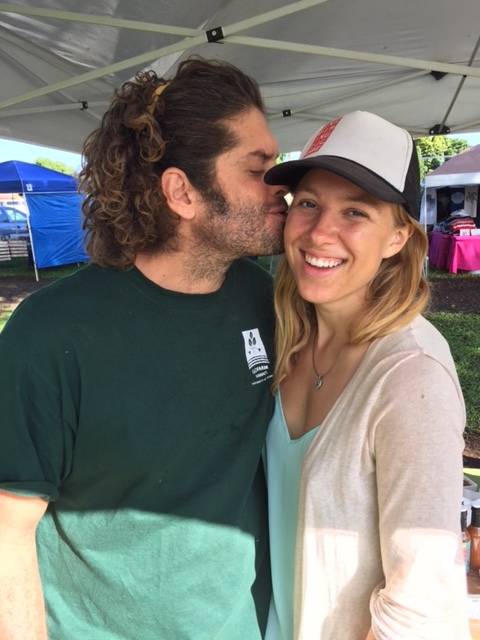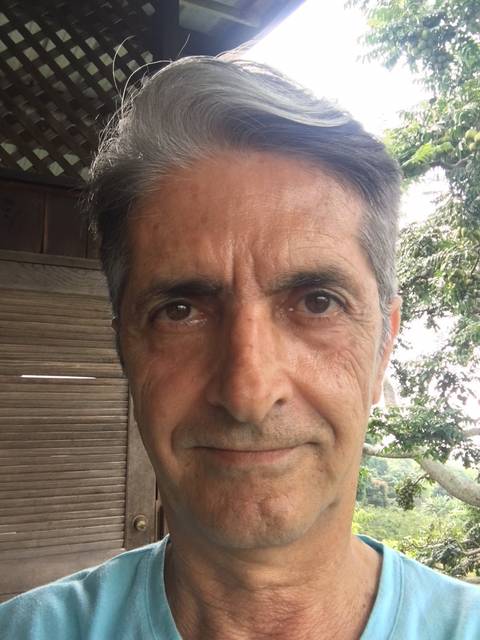Editor’s note: This is part 4 in a 4-part series this week introducing the final 8 Hawaii contestants vying for a $25K prize on Saturday.
Editor’s note: This is part 4 in a 4-part series this week introducing the final 8 Hawaii contestants vying for a $25K prize on Saturday.
We sat down with the last two finalists we are profiling, who focus on two particularly palate pleasing products: chocolate and hot sauce.
It’s always interesting to hear how the pieces fall into place and people get into business. The processes are always different because the people and circumstances are different, but also always the same, because of the combination of inspiration and the alignment of the stars.
Right place, right time, in other words.
Farsheed Bonakdar, owner of the Cocoa Outlet and The Chocolate Guy Hawaii, has had several businesses. He started his current business in 2000 when a friend who imported chocolate suggested it to him as an addition to the business he was running at the time. It sounded like a good idea. Now, 17 years later, it’s an even better one.
But Bonakdar’s acquaintance with cacao actually started years before.
“I bought some pods at the Hilo Farmers Market and tried to grow trees to see if that could be done on this island,” he said. “I really had no idea if it was possible.”
That situation went nowhere, but clearly planted seeds of inspiration given where it led in Bonakdar’s successful wholesale chocolate and pastry ingredient company.
“Chocolate is an interesting commodity,” Bonakdar continued. “In good times, hard times, anytime, chocolate makes people feel good.”
As president of the Kona Cacao Association and sponsor of the Big Island Chocolate Festival, Bonakdar has put his money and his efforts where his mouth is.
Christopher Bornstein and Lauren McKinley, owners of Spicy Ninja Sauce, were also inspired by friends. These friends had made a terrific chili paste and the discussion turned to how this recipe could be the start of a hot sauce company. The next day they made up three batches, but all were horrible, and the friends decided they’d had enough of the experiment.
To salvage something from the situation, Bornstein and McKinley threw all three batches into the blender. The three terrible batches combined to make one wonderful hot sauce. The only problem was that none of the recipes had been written down, so all the details had to be recreated.
After selling this product at their first farmers market in 2015, they got hooked on the idea of creating different flavors. Product variations blossomed from there. There are currently 30 varieties of Spicy Ninja sauce sold at farmers markets and retail outlets.
Bornstein and Bonakdar both talked a little about the issues they faced in getting their businesses started and keeping them going.
“As the new guy in the industry, back when I started, I had to overcome some strong connections that my would-be customers had with a competitor,” Bonakdar said. “What turned the tide for me was hosting cake baking classes. These went well and a light bulb went on. I started inviting world famous chocolatiers here to teach classes to local chefs. My business grew from there.”
Bornstein’s and McKinley’s challenges are “just basically hard work,” Bornstein explained.
“The initial plan was for us to buy ingredients,” McKinley said. “Unfortunately, there are not that many farmers who could provide us with a steady supply.”
This shortage led them to grow their own ingredients.
“It’s difficult to find land we can keep farming,” Bornstein explained. “We’re now starting over for the third time on some new land.”
So what would winning HIPlan mean to the Cocoa Outlet or Spicy Ninja?
“It’ll be huge,” Bornstein said. “We’d like to apply for a USDA Value-Added Products Grant so that $25,000 will be matched. That will allow us to finish up on our farm, get better prices on our bottles and start a Kickstarter campaign. We’d like to hire someone to run that and open it up to as many of the HIPlan finalists as we can, so we can take that money and grow it.”
Bonakdar would also use the grand prize to aid in expansion.
“The money would help me get a start on architectural plans for the development of a new site I’m planning,” he said. “I don’t have classes anymore, as I don’t have enough space. A new facility would have the space for that, a retail site, agritourism and for cacao processing, as well as eventually Hawaiian chocolate processing.”
Even if they don’t capture the grand prize, the HIPlan competition has still offered something of value to these finalists.
“We didn’t realize what a killer position we were in to become something big,” Bornstein said. “HIPlan made us realize that.”
The competition also motivated Bonakdar.
“HIPlan forced me to stay focused and consolidate my vision,” Bonakdar said. “It made me realize what a lot of great business plans there are around — a lot of great opportunities to bring something to enhance life and employment on this island.”
Anyone can experience the final phase of the HIPlan competition and find out who wins from 9 a.m.–noon Saturday at NELHA.
Dennis Boyd is director of the West Hawaii Small Business Development Center.


